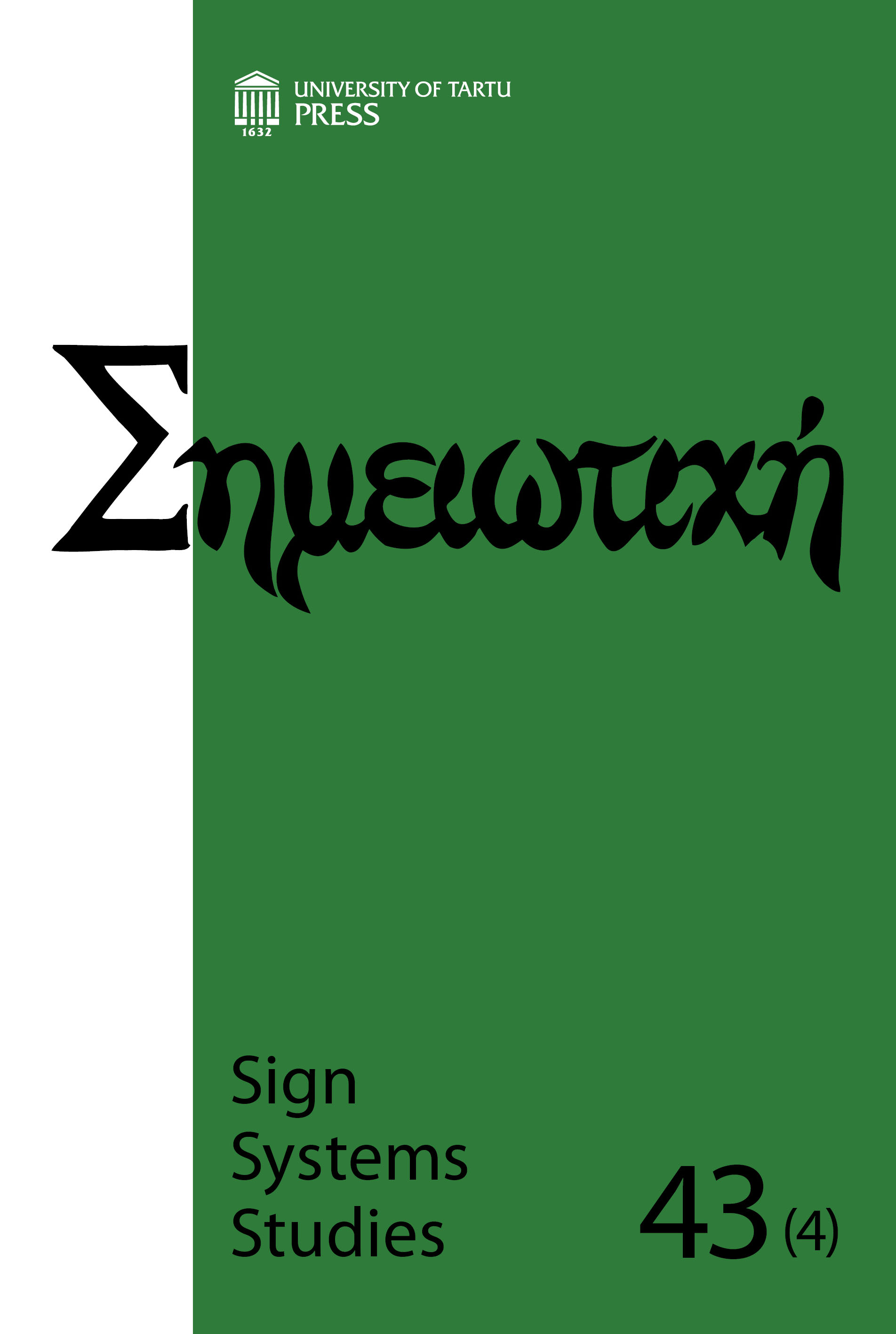The role of emotional interpretants in Peirce’s theory of belief and doubt
DOI:
https://doi.org/10.12697/SSS.2015.43.4.07Keywords:
belief, disposition, doubt, emotional interpretant, feeling, interpretant, Charles Peirce, quale, Christoph von SigwartAbstract
The theory of emotional interpretant is mentioned only a few times in Peirce’s works. My hypothesis is that if Peirce did not develop this concept through and through, and reflected on it only very late in his writings, it is because it had been implicit in almost all his previous epistemological and semiotic works. The qualitative nature which defines belief and doubt makes the whole theory of inquiry rely on feelings, and is a consistent part of the characterization of beliefs as dispositions. In spite of this, objectivity is still preserved.
Includes: Comment. Emotion and belief by Henrik Rydenfelt (pp. 496–500).
Downloads
Download data is not yet available.
Downloads
Published
2015-12-31
How to Cite
Chevalier, J.-M. (2015). The role of emotional interpretants in Peirce’s theory of belief and doubt. Sign Systems Studies, 43(4), 483–500. https://doi.org/10.12697/SSS.2015.43.4.07
Issue
Section
Articles


